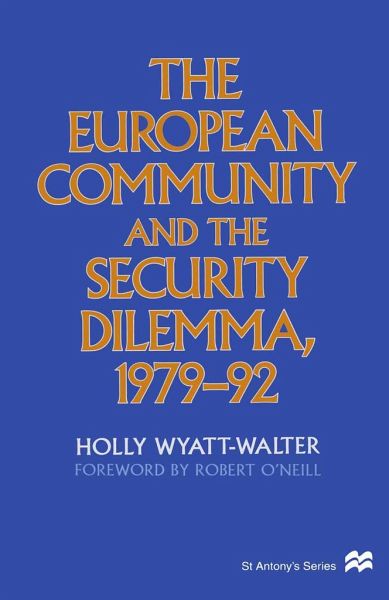
The European Community and the Security Dilemma, 1979-92

PAYBACK Punkte
26 °P sammeln!
This book shows how the relationship between security and integration in Western Europe depends upon an enduring implicit bargain between the US and its European allies. Despite internal and external pressures to develop a European security and defence identity distinct from NATO in the 1980s and 1990s, EC member states have consistently rejected supranational integration in the areas of security and defence. Despite considerable European dissatisfaction with American leadership of NATO, Europe has continued to accept that leadership even after the end of the Cold War and the signing of the Ma...
This book shows how the relationship between security and integration in Western Europe depends upon an enduring implicit bargain between the US and its European allies. Despite internal and external pressures to develop a European security and defence identity distinct from NATO in the 1980s and 1990s, EC member states have consistently rejected supranational integration in the areas of security and defence. Despite considerable European dissatisfaction with American leadership of NATO, Europe has continued to accept that leadership even after the end of the Cold War and the signing of the Maastricht Treaty.












